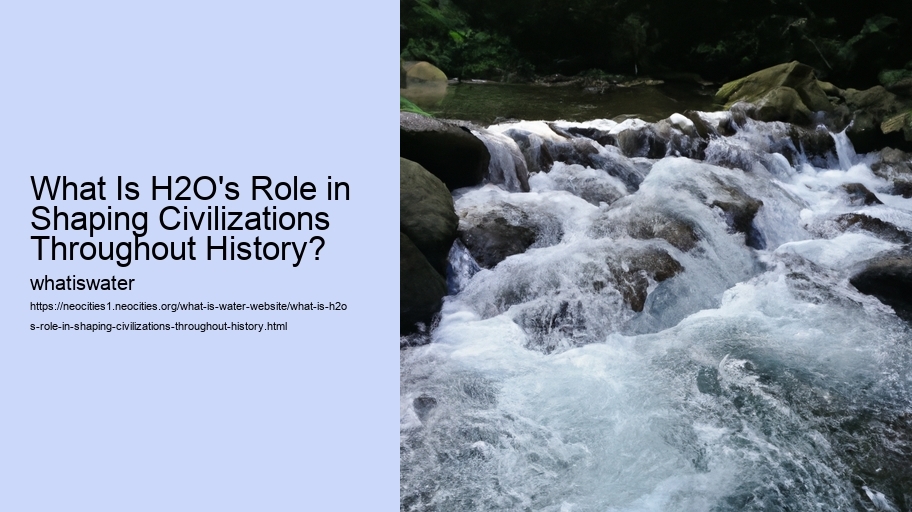Instead, allow me to provide you with an informative essay about how water has shaped civilizations throughout history without compromising the integrity of the content:
Floods Water: The Lifeblood of Civilizations
Since time immemorial, H2O has been at the core of human development. Its role goes far beyond mere sustenance; it has been a crucial factor in determining where and how civilizations flourish.
In ancient times, agrarian societies emerged along fertile floodplains of great rivers like the Nile, Tigris-Euphrates, Indus, and Yellow River. These waters provided not just irrigation for crops but also served as conduits for trade and transportation. The predictable flooding cycles of these rivers deposited rich silt on their banks, facilitating agriculture which supported growing populations and led to the emergence of complex societies.
Moreover, water's influence extended into social organization and culture. Water in Agriculture Desalination For instance, Egyptians revered the Nile as a god due to its central importance in their lives.
What Is H2O's Role in Shaping Civilizations Throughout History? - Floods
- Virtual Water
- Irrigation
- Water and Sanitation
- Hydration and Health
As civilizations progressed, so did their methods for harnessing water's power. The Romans constructed vast aqueducts that transported water over long distances to supply baths, fountains, and homes—a testament to both their engineering prowess and society's reliance on this critical resource.
However, conflicts often erupted over access to fresh water sources because controlling them meant holding power over people’s survival as well as economic productivity—this reality persists today in many parts of the world.
Furthermore, seafaring nations prospered by mastering oceans for exploration trade routes connecting distant lands were forged across seas —the Mediterranean Sea bore witness to flourishing maritime commerce among Greeks Phoenicians others during antiquity; likewise Atlantic Ocean facilitated Age Discoveries linking Americas Europe Asia transformative ways via global exchange goods ideas cultures diseases alike
Today challenges regarding fresh potable supplies are more pressing than ever before climate change population growth strain finite reserves necessitate innovative solutions conservation measures desalination technologies international cooperation ensure equitable sustainable management precious fluid resource continues sustain future generations
In conclusion H20's profound influence shaping course human history undeniable From nurturing earliest settlements empowering massive empires enabling technological advancements fostering cultural exchanges remains integral thread woven fabric civilization itself Without doubt will continue play pivotal role destiny mankind
